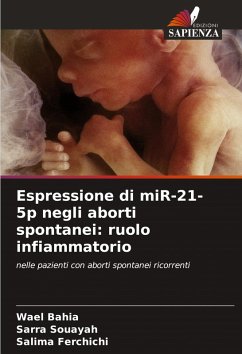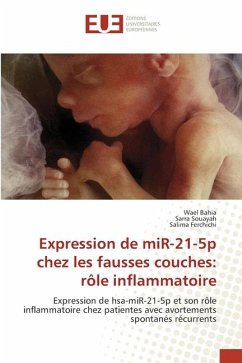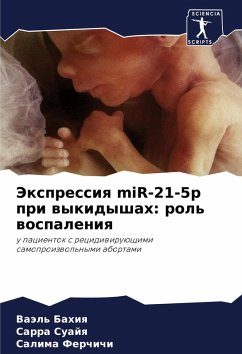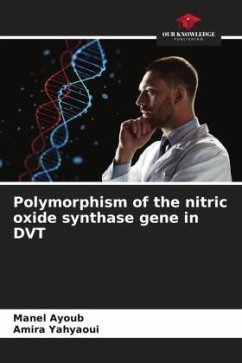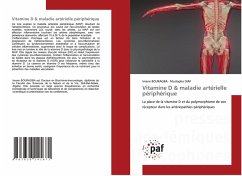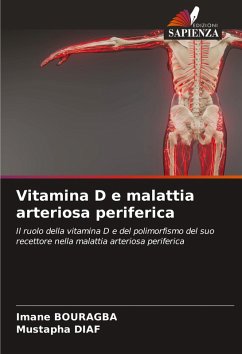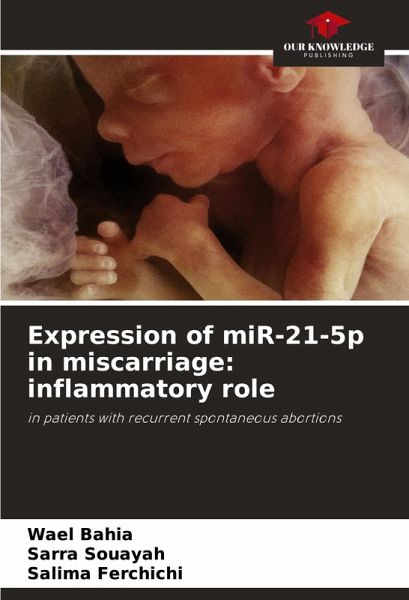
Expression of miR-21-5p in miscarriage: inflammatory role
in patients with recurrent spontaneous abortions
Versandkostenfrei!
Versandfertig in 6-10 Tagen
40,99 €
inkl. MwSt.

PAYBACK Punkte
20 °P sammeln!
Recurrent spontaneous abortion (RSA) poses a major clinical challenge, with an etiology still largely unexplained. Our study focuses on the association between three NF B1 gene polymorphisms and RSA in a case-control cohort from the Tunisian population. Results indicate a significant correlation, particularly for rs28362491, with notable differences in allelic and genotypic frequencies between groups. Haplotypic analysis highlights the involvement of certain haplotypes, in particular TAG and AGG, in ASR. However, the study of differential expression of hsa-miR-21-5p with NF B1 and IL-6 by qPCR...
Recurrent spontaneous abortion (RSA) poses a major clinical challenge, with an etiology still largely unexplained. Our study focuses on the association between three NF B1 gene polymorphisms and RSA in a case-control cohort from the Tunisian population. Results indicate a significant correlation, particularly for rs28362491, with notable differences in allelic and genotypic frequencies between groups. Haplotypic analysis highlights the involvement of certain haplotypes, in particular TAG and AGG, in ASR. However, the study of differential expression of hsa-miR-21-5p with NF B1 and IL-6 by qPCR does not allow definitive conclusions to be drawn, due to sample limitations and the rarity of cases of women who have undergone four or more successive spontaneous abortions without having children. These results underline the importance of future research to elucidate the underlying mechanisms of RSA and develop effective prevention and treatment strategies.






